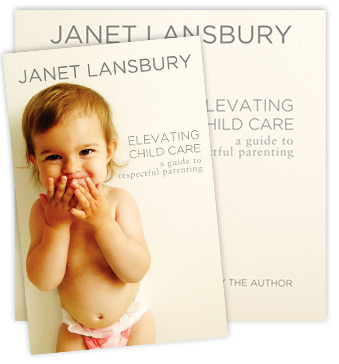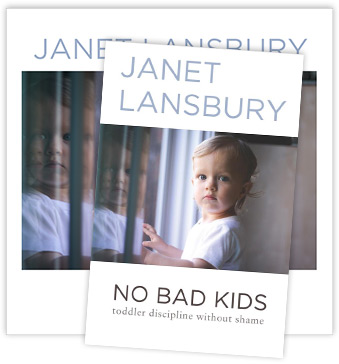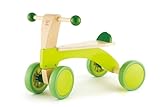I am currently in a debate with my significant other as to how we want to discipline our child when the situation calls for it. She is 10 weeks pregnant and it’s kind of early, I know, to be talking about this, but it’s just something that keeps coming up, and we can’t seem to come into an agreement on anything. She doesn’t like the idea of negative reinforcement but I feel it is important.
I don’t want to spank my child, but what I do want is to make him do some manual labor as I talk to him about what he did wrong and why. When I say manual labor, I mean take away the luxuries we share in life and make him/her do it with his/her own two hands such as doing the dishes by hand. So, while I help him/her work through the mistake he/she made, he also realizes not to take for granted the luxuries we have today due to technology. She disagrees. We don’t even know the gender of our child yet, but this is a topic that keeps occurring in our conversations. We both would like to put it to rest so we are turning to an expert, whom we believe to be you.
Thank you,
Mitchell
Hi Mitchell,
Thanks for trusting me. A couple of thoughts… First, the discipline plan you’re envisioning is for a child older than an infant or toddler, correct? Here’s an interesting and wonderful thing…handling discipline issues with empathy and respect in the first years usually means that there will seldom be disciplinary situations later on. Seriously! This is what I’ve found personally and through the experience of many other parents as well. Getting the first years “right” is the key.
The most effective way to provide discipline in the early years is to define boundaries while maintaining a trusting relationship. This means taking on the role of being our child’s gentle and confident leader. Young children need to be stopped from doing “wrong” things, but in a brief, kind and unemotional way. (I describe this more thoroughly in No Bad Kids – Toddler Discipline Without Shame.)
When treated with honesty, fairness, and empathy — as people who are just learning and don’t yet have self-control — children begin to internalize our values. Even babies know when they are being spoken to directly and with respect. This is a path to self-discipline that serves our children well throughout life, not to mention fostering a close and loving relationship with their parents.
Punishments of any kind tend to take us off that track and foster a more adversarial or manipulative relationship, which is likely to lead to more frequent and difficult discipline issues down the road.
I love your idea about instilling an appreciation for hard work and the luxuries in life. I do think that there are far better ways to do that than making those lessons a punishment, which will definitely cause your child to perceive them negatively. The most powerful way we teach those lessons (and just about every lesson) is through modeling — being a person who takes pride in hard work, doesn’t mind a bit of struggle and values simpler, low-tech things.
The truth is children usually end up teaching us these lessons. I’ve never known a young child who wouldn’t rather light candles than turn on lights, hold a parent’s hand and walk to preschool, vacation in a tent rather than a hotel, spend all day outdoors, or live in a smaller, cozier house rather than a big one. Children of all ages love to do things themselves. They like to create and build things rather than press a button and have it done for them. They don’t mind chores, work and struggle, especially if we continue to present those things as positive, interesting parts of life and don’t interfere or “fix” everything for them. (Wait until you see your baby’s “work ethic” as he, for example, struggles to grasp an object on the floor nearby, or figures out how to crawl.) I guarantee that your child will inspire you to appreciate work and the simple things in life better than anyone else ever could. All we have to do is keep nurturing these innate qualities.
So, my advice would be to learn everything you can about discipline in the early years. Figure out what feels right to you and your significant other to give your baby the best start possible. Prioritize the quality of your relationship with the important person you will soon meet (so exciting!). Keep life and toys very simple in the first years. Don’t indulge in TV as a babysitter, provide tech devices or the latest toys because the Joneses do. Someday your kids will be proud like mine are, that they were, in one daughter’s words, “TV deprived”. Since they’ve become students they know: “TV makes you dumber, Mom.”
(Okay, so my son’s a little upset that he’s the only 5th grader he knows without a cell phone… But in their hearts children know that we are thoughtfully considering doing what’s best for them rather than caving in, and they appreciate that.)
Regarding lectures… My personal belief is that they are heard best by our children when they aren’t presented during a disciplinary moment, especially with toddlers. When you and your little boy or girl are enjoying a relaxing time together, share about your values and philosophies. Lectures during discipline tend to be interpreted as shaming. With toddlers, saying too much (which means more than just a few words like, “I can’t let you, because…”) can make the child perceive a momentary incident as a major event. Besides being shaming, this often backfires, because our child will impulsively seek out this negative attention and drama again.
I really hope some of this helps. I appreciate the care you and your significant other are taking to figure these things out together ahead of time. It bodes very well for your child, who will soon change your life in the most wonderful way!
Cheers,
Janet
P.S. Here are some posts worth reading:
“Positive Child Guidance: A Look At Discipline vs Punishment” by Amanda Morgan from Not Just Cute
“A Toddler’s Point Of View” by Lisa Sunbury from Regarding Baby
“I’ll Let You Know How It Goes” (insights on preschoolers doing chores) by Thomas Hobson, Teacher Tom
All your ideas are welcome….please share!
(Photo by roland on Flickr)















What great parents these two are already, to be talking about important issues ahead of time and seeking advice when they disagree. Applause!! Lucky baby!!
Janet, I totally agree with what you say. Manual labour can be a labour of love and a hugely positive learning experience, and we’d all be better off for doing more of it.
I’d add that getting a child to appreciate what they have is a holistic experience- if we only talk about it when the child’s in trouble, we kind of miss the best teaching moments- children learn best when their head is in a positive space (says the career educator 🙂 ). Supporting a World Vision child of their own age and sex, for example, can be a wonderful positive way to open a child’s eyes to the nature of their advantage.
And all we really need to do when thinking about passing on our ethics to our child is to think back to what made us feel good and bad in our own childhood. Did any of us respond with positive energy to punishment and tirades, or did that just hurt our self-esteem and make us want to strike out or sink into the floor?
If we model the behaviour we want to see- parents helping each other with chores, the whole family talking to each other with respect, etc- we will be SO far ahead in the discipline stakes.
As always, I just love reading your posts and learning to be a better Mommy to an amazing child.
Just today, thanks to not quite two years of positive reinforcement and building a life framework of understanding, empathy and trust with our not-quite-two year old, our son unintentionally hurt me. On his own,he made the choice to stop what he was doing, come over to me (I needed a second to turn away, breathe and calm myself…it REALLY hurt) and say, “(I’m) sorry”.
I was shocked, awed, and truly appreciative of this amazing gesture of understanding from my baby.
I guess he is not my baby anymore, but truly turning into a boy. All of what you have just written in this wonderful post, and your other posts on discipline, have led up to that spectacular moment earlier this evening. As always, thank you for your advice, and keep it coming!
Wow, Safra, that gave me goosebumps. Thank you for sharing! You’ve done well!
Hi, i’ve just recently found your blog and website. This is an interesting post. I have 3 kids aged 4 and under. One thing i’ve found to be incredibly important is consistency in how both parents discipline the children (however that is!), and that needs really good communication. We are always learning how to be better parents and don’t always get it right, but as long as my husband supports me and we are consistent, the kids respect us and i think, feel more confident having consistent boundaries and knowing we are all on the same team. I think this guy has the right idea in talking with his wife about how they want to parent, but it needs to be an ongoing conversation and a flexible one. Things change, we need to keep reading, learning, our kids are often different to us and each other….you need to adapt!
Reading this post reminded me of a woman who shared her story that she cannot do dishes by hand as an adult now due to massive anxiety brought on from her traumatic experiences of being forced to wash dishes as punishment, and also being forced to do them ‘correctly.’ I think that its a hard line to walk, manual labor as “punishment” and then the child believes that chores or errands are dreadful activities that soon begin to elicit a deep sense of shame or foreboding. In that respect, I absolutely disagree with this expectant dad’s idea of using manual labor for punishment. I say do chores joyfully, together, for each other, out of love and respect for your family and your environment, out of thankfulness of your home and fortune, for cleanliness and hygiene, or to help others feel comfortable or acknowledged. Children can learn to be thankful for their luxuries in many different ways that don’t involve negativity or resentment.
I think the “manual labor” punishment may come in useful when the child is, say, 15 and defies some convenant of trust like not coming home from a friend’s house on time. Maybe then they can choose to wash Dad’s car sunday morning as a way to help them meditate on their breach of agreement and as a sign of good faith that they know they made a mistake, but for a toddler or even the young child, I cannot see it being very applicable!
So true!!
Dear Janet,
I’m writing from Chennai, India. I’m relatively new to your website. I stumbled upon it while trying to find more about Jane Healy. I LOVE both you and your website! 🙂 I don’t have children yet but planning on having them soon. I’m doing lots of research before we start trying. My baby will definitely be a RIE baby. Everything about RIE is so common sensical and still I keep on having aha moments while reading your beautifully written posts. I hope you never stop doing what you do, or at least till my baby is all grown up. 🙂
Hi Gauri! Thank you for the boost of confidence and support. I can promise you that you will never regret following Magda Gerber’s approach and I plan to be here to support you all the way. It felt the same to me when I first learned about it…so common sensical and “right”. Cheers!
it was very hard for me to read mitchell’s question. i absolutely applaud them for discussing issues this early on in their lives as “parents.”
it’s not how to discipline them but to look at what their “bad” behavior is trying to communicate. he is focused on how to teach lessons long before a crime has been committed which tells me it will be very challenging for him to focus on what the child is clumsily trying to say and instead on how he can control, teach, hurt the child.
@Jennifer, I think that before a lot of us had kids we had all kinds of crazy ideas about how discipline should work. My husband and i remember watching those Nanny shows on TV and thinking that they had it right! Then when our son was born those ideas seemed insane!
And back to the original question, I just wanted to add that for us on of the most difficult parts of parenting for me is slowing down to my son’s speed when it comes to housework. I was taught as a child to just get the housework done as quickly as possible so that you can have fun, but my son has taught me that housework can actually feel good when you’re not rushing through it! I try to keep in mind that my son has just as much fun trying to figure out how to use a broom and dustpan, or spraying and wiping down the fridge as he does playing with his toys. He needs me to be patient as he works on those skills and rushing him through it so that we can “play” is the last thing he needs.
It seems that the father-to-be has come from a past of tough discipline. The mother-to-be has come from a more RIE philosophy. In my opinion, this discussion brings to light perhaps the most critical and valuable benefit of Janet Lansbury’s work.
For our society to change the future of humankind into a non violent world, eliminating senseless war, and embracing peaceful ambitions of health and education and opportunity for all, it will take a generational paradigm shift in understanding. Understanding that nurturing the child’s spirit from birth to five with utmost respect will ultimately make all the difference in our world’s future.